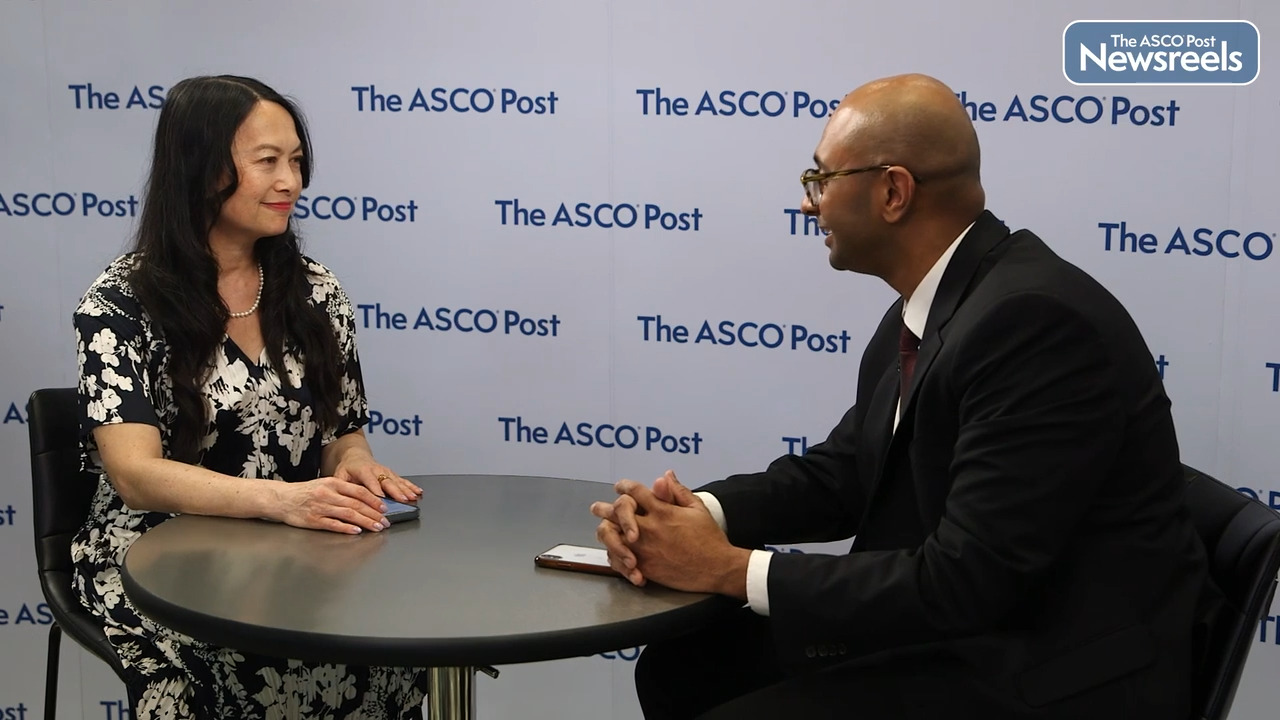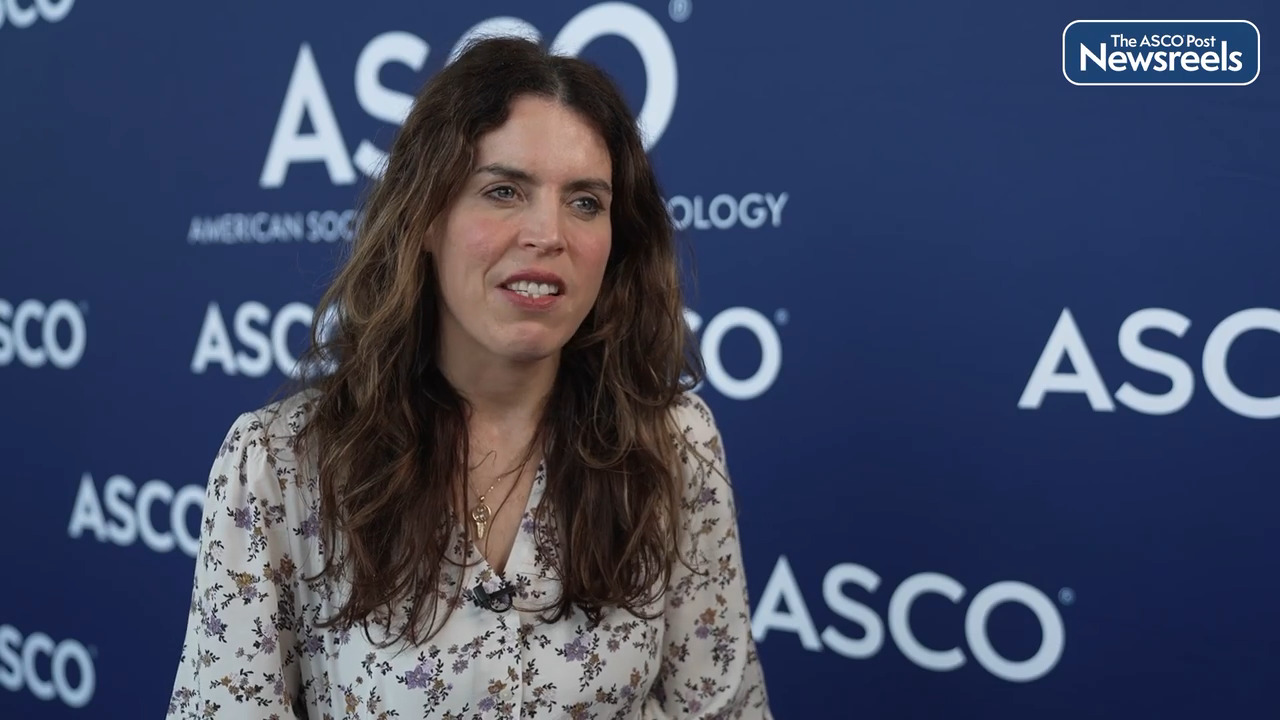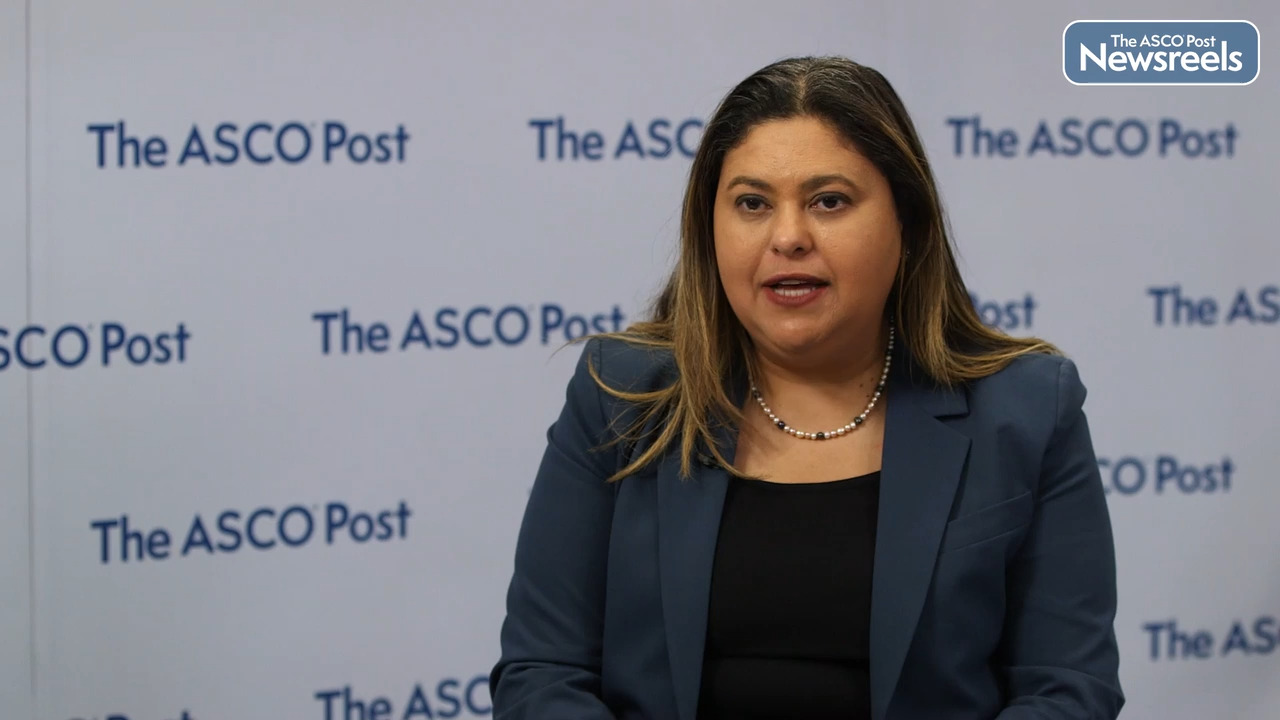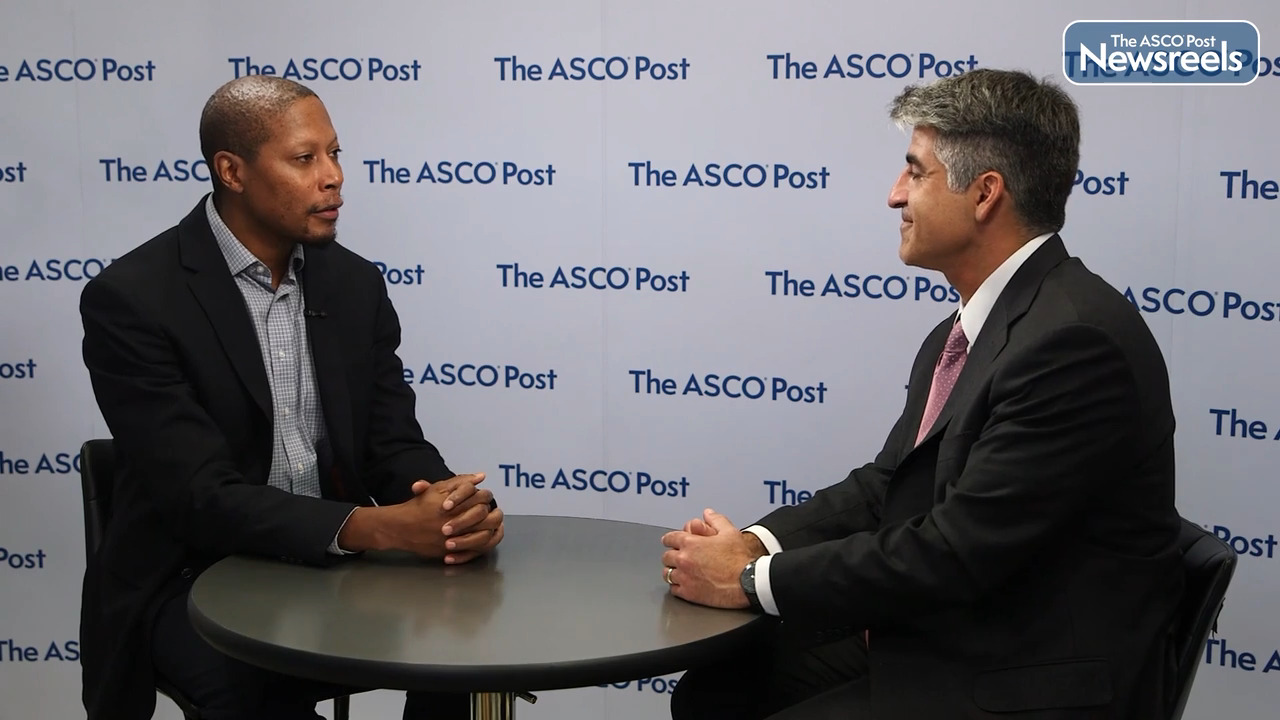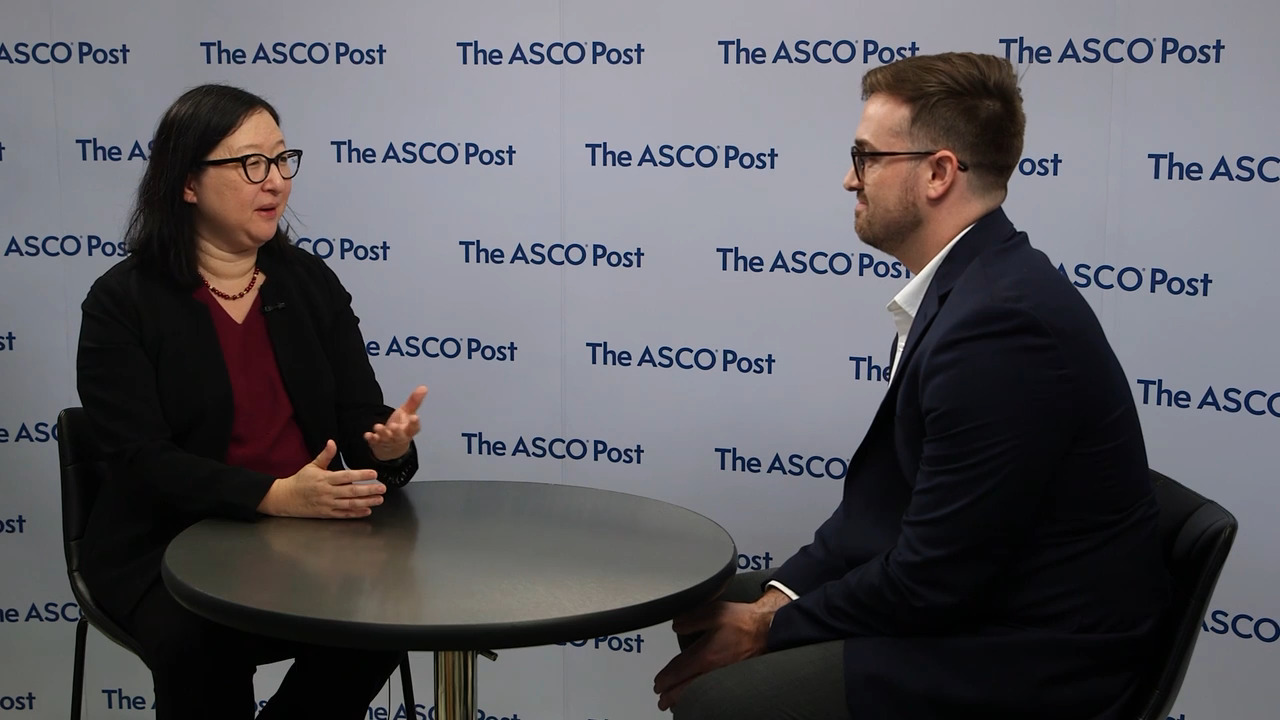Transcript
Disclaimer: This video transcript has not been proofread or edited and may contain errors.
Manali Kamdar:
About 60% of patients with diffuse large B-cell lymphoma can be cured by upfront chemoimmunotherapy, however, 40% of patients will experience a relapse. This could either be primary refractory or patients who relapse after demonstrating an initial response.
For the longest time, based on the PARMA study, which was now published about a quarter-century ago, autotransplant has been the standard of care for patients who relapsed with chemosensitive diffuse large B-cell lymphoma. However, most of the patients who are intended to go to an autotransplant are not chemosensitive or a transplant ineligible, and thus, this represents a huge unmet need. In 2018 chimeric antigen receptor treatments, CAR T-cell therapy-directed against CD19, became FDA approved for patients in the third-line diffuse large B-cell lymphoma setting. Clearly, 40% of patients who would've otherwise succumbed to their disease were able to get cured with CAR T-cell therapy.
Not all relapses are created equal, and as a result we do know that within the relapse refractory diffused large B-cell lymphoma subset, patients with primary refractory or early relapse, meaning patients who relapsed within 1 year of primary chemoimmunotherapy, demonstrate dismal outcomes despite an autotransplant, and thus, it was intuitive to move CAR T-cell therapy forward and was thus tested in randomized clinical trials, two positive studies ZUMA-7 and TRANSFORM, which compared, head-to-head, high-risk relapse diffuse large cell lymphoma patients in the second line setting standard of care autotransplant versus CAR T-cell therapy. The primary endpoint was event-free survival, which was statistically significant and superior on the CAR T arm, and the FDA thus approved CAR T-cell therapy, axi-cel or liso-cel, in the second-line setting for transplant eligible primary refractory or early relapsed diffuse large B-cell lymphoma patients.
The big question then is, what do we do about patients who are transplant ineligible and who have relapsed with diffuse large B-cell lymphoma? Thus was born the PILOT study, which was a phase II pivotal study exploring liso-cel in patients after they have relapsed would diffuse large B-cell lymphoma. The overall response rate was 80%, CR rate of 50%. Safety was absolutely manageable. There were no grade 4 CRS on neurological events. No grade 5 neurological events either. Based on that, the FDA approved liso-cel in patients who were transplant ineligible after failure of one line of treatment.
So, clearly for patients with diffuse large B-cell lymphoma who have failed one line of treatment, now we have CAR T-cell therapy as an option. However, not everyone is able to get to CAR T-cell therapy, especially based on the logistical burden that it entails, meaning a referral to an academic center, especially in the face of a rural urban discord. There's certainly a lot of social disparities besides the fact that manufacturing time can certainly cause more delays, and if tumor burden is high, that's when CAR T-cell therapy may not be the best for the patient.
I think in those circumstances we have made substantial strides with regards to novel agents, novel agents such tafasitamab and lenalidomide. The combination has shown to have good responses, especially in patients who do demonstrate a complete response. The complete responses durable at the 22-month mark. So, in patients who are transplant ineligible and CAR T ineligible, tafasitamab and lenalidomide in the second line space is now FDA approved. For patients with relapsed refractory diffuse large B-cell lymphoma.
We certainly need to do better and I think bispecific T-cell engagers that target CD20 have shown excellent outcomes in the third-line setting. Based on a recent FDA approval for epcoritamab, a bispecific targeted bispecific T-cell engager targeting CD20, it has now been approved in the third-line setting. I think the space for relapse refractory diffuse large B-cell lymphoma is certainly very promising with all of these new agents. I anticipate bispecific T-cell engagers will be also tested in clinical trials and brought forward in the second-line space. So, I think at this point in time, based on all the novel agents that are available for patients with relapse refractory diffuse large B-cell lymphoma, we are certainly making progress thanks to all the clinical trials that are underway and have been done.
